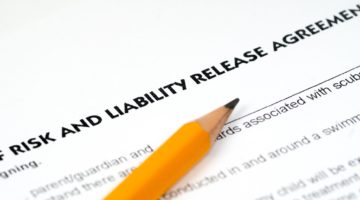Effective immediately, Massachusetts employers must furnish up to 40 hours of COVID-19 emergency paid sick leave (“COVID Leave”) to their employees, to be made available either through September 30, 2021, or until the exhaustion of $75,000,000 in program funds – whichever is earlier. The full text of H.3702 is available here, and preliminary guidance for employers issued by the Commonwealth is available here.
Employees must be permitted to use the leave for the following COVID-19-related reasons:
- an employee’s need to:
- self-isolate and care for themself because they have been diagnosed with COVID-19;
- get a medical diagnosis, care, or treatment for COVID-19 symptoms; or
- get or recover from a COVID-19 immunization;
- an employee’s need to care for a family member who:
- must self-isolate due to a COVID-19 diagnosis; or
- needs medical diagnosis, care, or treatment for COVID-19 symptoms;
- a quarantine order or similar determination regarding the employee by a local, state, or federal public official, a health authority having jurisdiction, or a health care provider;
- an employee’s need to care for a family member due to a quarantine order or similar determination regarding the family member by a local, state, or federal public official, a health authority having jurisdiction, the family member’s employer, or a health care provider; or
- an employee’s inability to telework due to COVID-19 symptoms.
Employers with less than 500 employees may find this framework familiar. It is very similar to the emergency paid sick leave required by the Families First Coronavirus Response Act (FFCRA), which passed on March 18, 2020. The mandatory emergency paid sick leave required by the FFCRA expired on December 31, 2020, though employers may still provide such leave on a voluntary basis and receive a payroll tax credit through September 30, 2021.
The new Massachusetts law diverges from the FFCRA in several important ways:
- Providing the leave is mandatory, not voluntary.
- It covers employers of all sizes, including those of 500 or more.
- The federal American Rescue Plan, which Pres. Biden signed into law in March 2021, expanded the reasons for taking emergency paid sick leave under the FFCRA to include receiving or recovering from COVID-19 vaccinations. In contrast, this Massachusetts statute does not include vaccine-related reasons under the umbrella of COVID Leave.
- Rather than obtaining reimbursement through payroll tax credits as they did through the FFCRA, employers must submit for reimbursement “in a form prescribed by the executive office for administration and finance, or any department or agency thereof.” The current employer guidance does not include any detailed information about the reimbursement process, but notes that “additional guidance will be issued in the coming weeks” on the topic. In the meantime, per the Commonwealth’s guidance, employers who wish to be reimbursed for providing COVID Leave should track the following information;
- the employee’s social security or tax identification number;
- the employer identification number associated with the position from which the employee took leave;
- the length of the leave (in hours) and wages paid during that leave that are not eligible for federal tax credits, and are not otherwise paid under any other government program or law;
- benefits applicable to the employee taking leave; and
- the number of hours in the employee’s regular schedule, or (A) if the employee has no regular schedule, the hours that the employee was scheduled to work per week over the 6-month period immediately preceding the date on which such employee takes the COVID-19 Massachusetts emergency paid sick leave, including hours for which such employee took leave of any type; or (B) if the employee did not work over such 6-month period, is equal to the reasonable expectation of the employee at the time of hiring of the average number of hours per week that the employee would normally be scheduled to work.
Other important takeaways about the COVID Leave include the following:
- Notice requirement. The law states that within seven days, the Commonwealth shall “prepare and provide to employers notice of this section in English and in other languages.” It further instructs employers to “post this notice in a conspicuous location accessible to employees in every establishment where employees with rights under this section work and shall provide a copy to their employees.” The statute also provides for notice via electronic communication for employees who telework.
- Maximum of $850 per employee. The maximum amount an employer is required to pay per employee, and the maximum amount for which the employer may seek reimbursement for any one employee, is $850. This is the equivalent of a full week of pay for a full-time, salaried employee who earns $44,200/year.
- Non-retaliation. Employers may not interfere with an employee’s ability to use COVID-19 emergency paid sick leave or retaliate against an employee for exercising rights under the program
Massachusetts employers should stay tuned for additional guidance and information on this program in the coming weeks.
Share with your network:




